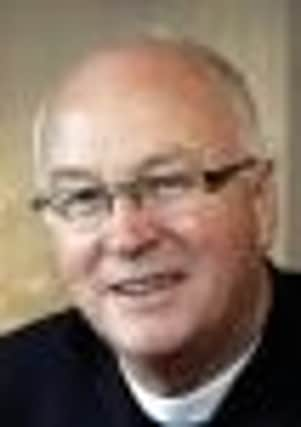In praise of the whistle-blowers


It is whistle-blowers of quite another sort I have in mind; the courageous men and women who, in their workplace, are prepared to speak out about wrong-doing, signalling that for such malpractice the game is over.
By the time this humble column is in print, the BBC’s ‘Panorama’ programme will have been aired, with one arm of the BBC holding another arm of that same organisation responsible for covering-up unseemly practices.
Advertisement
Hide AdAdvertisement
Hide AdPublic reaction to the allegations against Sir Jimmy Savile have even led some to demand that he should be posthumously stripped of his knighthood.
Incidentally, the bestowal of that knighthood is another example of our daft ‘honours’ system, where titles are bestowed upon those who, in remuneration and publicity, already have honours enough. Personal rant over!
Ever since allegations surfaced about the alleged behaviour of the late Sir Jimmy Savile, two questions have been in my mind.
First, why did folk not speak up while Savile was still alive, and second, who in the BBC turned a blind eye to criminal behaviour?
Advertisement
Hide AdAdvertisement
Hide AdThe first question is easily answered, by the assertion, inadequate though it is, that ‘no one would have believed me.’
Recent adverse publicity regarding the Northern Ireland Fire and Rescue Service substantiates that claim, where a female whistleblower, instead of being complimented on her public-spirited attitude, found herself suspended from her employment.
The second question - who turned a blind eye? - might well implicate many in high places.
The old writer of Ecclesiastes knew the inveterate human desire to protect oneself, regardless of virtue.
Advertisement
Hide AdAdvertisement
Hide Ad“If you see the poor oppressed in a district, and justice and rights denied, do not be surprised at such things; for one official is eyed by a higher one, and over them both are others higher still.” (Ecclesiastes 5; 8).
The American essayist, Ralph Waldo Emerson pointed out that every great reform was once a private opinion.
The physician Hervey, for instance, who argued that blood circulated round the body, was laughed at by his contemporaries, and he lamented that he had “fallen mightily in (my) practice”.
Scorn and contempt often awaits those who blow the whistle; but when people are bold enough to do so, they find themselves in the best of company, for Jesus of Nazareth was a great ‘whistle-blower’.
Advertisement
Hide AdAdvertisement
Hide AdJesus was not done to death for teaching ‘Love God and love your neighbour’. He was done to death because he called time on the hypocrisy of the religious leaders, the Pharisees.
The New Testament lists ‘good’ Pharisees, such as Nicodemus, Gamaliel, and Saul of Tarsus. But many of the rest were merely playing at religion, attending to the minutiae of religion, and neglecting “the more important matters of the law—justice, mercy and faithfulness. You should have practised the latter, without neglecting the former” (Matthew 23;23).
Modern whistle-blowers, likewise, often find themselves crucified.
But that’s the risk we must take, in the name of honour.